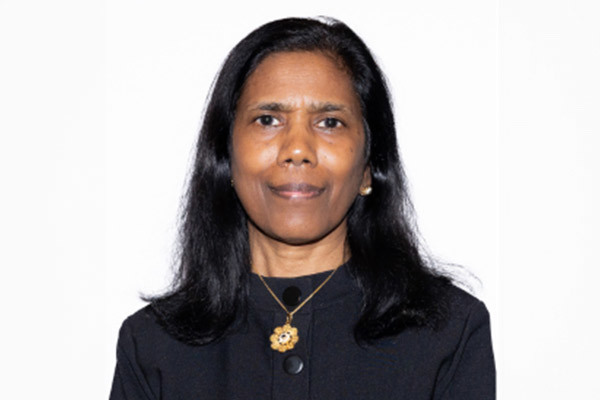Specialist areas in psychiatry
Psychiatry is a broad field with a variety of subspecialties addressing the needs of patients throughout all the stages of life, from childhood and adolescence into adulthood and old age.
Additional subspecialties address issues such as addictions, or a psychiatrist may work with other health professionals as part of a team dealing with complex issues such as self harm or eating disorders.
Adult psychiatry
Adult psychiatrists are at the cutting edge of mental health services where patients and their families are most distressed and at risk. They frequently encounter conditions such as schizophrenia, bipolar disorder, depression, personality disorders and a range of anxiety disorders.
In the community, adult psychiatrists are the leaders of multidisciplinary health teams, formulating and determining management plans for patients and their families. They work with members of the team to deliver treatment to the patient, including education, lifestyle advice, medication, and social, occupational and psychological therapies. Adult psychiatrists may also work in a range of other roles, including other subspecialties.
For many, adult psychiatry is considered the heart of the discipline; it is the most popular and commonly practiced subspecialty and provides an interesting and rewarding career.
Advanced Training in Adult psychiatry
About the RANZCP's Faculty of Adult Psychiatry
Addiction psychiatry
An addiction psychiatrist needs a wide range of general psychiatry skills as their work focuses on the study, treatment and prevention of a wide range of addictions. The aim of addiction psychiatry is to stop or limit the addictive behaviour of a person, address their vulnerabilities for addiction and then provide help in maintaining their recovery.
Addiction psychiatry requires a good knowledge of both physical health and psychological treatment, as well as an understanding of the social context and public health approaches to these problems. Psychiatrists in this area play a vital part in the development of community policies and programs to combat and manage alcohol, drug and gambling problems.
Advanced Training in Addiction Psychiatry
About the RANZCP Faculty of Addiction Psychiatry
Child and adolescent psychiatry
Child and adolescent psychiatry focuses on infants, children, adolescents and their families. Typically a psychiatrist dealing with children will see developmental disorders such as ADHD, autism or emotional and behavioural issues that have resulted from conflict or abuse.
Often the issues that can lead to mental illness in adulthood first become noticeable in adolescence. A psychiatrist working with teenagers might encounter the first episodes of conditions such as depression, anxiety disorders, anorexia nervosa or schizophrenia.
Psychiatrists working with children and adolescents draw on a wide range of skills, including psychopharmacology, psychotherapy and family therapy. They often work alongside professionals such as teachers, school guidance officers, child safety workers, psychologists and paediatricians.
Advanced Training in Child and Adolescent psychiatry
About the RANZCP's Faculty of Child and Adolescent Psychiatry

“It is a great privilege to be involved in the multidisciplinary, holistic, and intergenerational work that takes place during the most critical moments for children and families. The most rewarding aspect is the opportunity to change lifetime trajectories including potentially saving someone's life with a conversation.”
Professor Valsamma Eapen
Consultation–liaison psychiatry
Consultation–liaison psychiatry deals with the coexistence of a range of physical and psychological issues, which can reveal themselves as problems such as self-harm or difficulties in adjusting to illness.
Medical and surgical patients have higher rates of mental health problems, which can be helped with psychological or pharmacological treatments. Patients coping with chronic diseases can also benefit from a consultation–liaison psychiatrist’s help if they are having difficulties managing their condition.
Consultation–liaison psychiatrists work with patients, medical colleagues and also systems outside mental health. They play an integral part in providing patients with holistic health care and can provide valuable training and advice for hospital colleagues managing common mental health problems that they encounter in their day-to-day practice, such as depression, dementia, delirium or anxiety.
Learn more entry requirements, formal education and training and assessment via
Advanced Training in Consultation–liaison psychiatry
About the RANZCP's Faculty of Consultation-Liaison Psychiatry

“I love that even after nearly fifteen years in this field, my job is different every day - it is rare for a week to pass without seeing a situation or condition that is new to me. The variety keeps me on my toes and my thinking fresh. Working in a general hospital's dynamic and complex system means we are often the face of psychiatry to the rest of the hospital – it is a very collaborative role.”
Dr Carol Silberberg
Forensic psychiatry
Forensic psychiatrists help courts determine criminal responsibility. They are responsible for the assessment and treatment of mentally disordered offenders both in custody and in the community. They also assess issues such as the risks of violence and reoffending.
Forensic psychiatry covers the areas where criminal and civil law meet psychiatric practice. It addresses issues such as involuntary treatment, juvenile offending, competence, psychiatric injury and disability, diversion of offenders from court to treatment, and the provision of medico-legal opinions and expert evidence.
Advanced Training in Forensic psychiatry
About the RANZCP's Faculty of Forensic Psychiatry
Neuropsychiatry
Neuropsychiatry sits at the nexus of psychiatry, neurology and medicine, and is dedicated to understanding brain–behaviour relationships and caring for sufferers of neuropsychiatric illness. The specialty is frequently referred to as 'organic' psychiatry and addresses the issues of mental health disorders and biological brain disease.
Neuropsychiatrists see patients with a wide range of disorders of behaviour, emotion or cognition associated with organic brain disease, particularly neurological or neurodegenerative disorders. Patients with issues such as younger-onset dementias, movement disorders such as Huntington's and Parkinson's diseases, and treatment-resistant psychiatric illnesses may be among those typically seen by a neuropsychiatrist.
About the RANZCP's Section of Neuropsychiatry
Old age psychiatry
The psychiatry of old age relates to the patterns, causes, effects and relationships between the ageing process, medical factors, and the social, psychological, spiritual, and cultural issues of late life.
Psychiatrists in this area collaborate with a variety of colleagues and agencies such as nurses, physicians, social services, occupational therapists and volunteer organisations.
As their populations age, Australia and New Zealand are experiencing an increasing demand for psychiatrists who are well equipped to help older people and their families deal with the effects of mental health problems in later life.
Advanced Training in Psychiatry of Old Age
About the RANZCP's Faculty of Psychiatry of Old Age
Perinatal and infant psychiatry
The most common perinatal mental health problem is postnatal depression. Postnatal depression can have severe long-term effects on relationships, families and children.
Partners can experience depression and the parental bonds with the infant can be affected, leading to a child having issues later on.
Perinatal mental health is closely connected to infant mental health, so the relationship between mother and baby is critical. Working with mothers and infants to improve their interaction and attachment at an early stage of development can also help to prevent children developing mental health problems later on.
About the RANZCP's Section of Perinatal and Infant Psychiatry
Psychiatry of intellectual and developmental disabilities
Almost 500,000 Australians suffer from some form of intellectual disability. People with intellectual disabilities have highly complex needs and suffer from higher rates of mental ill health, poor general health and shorter life expectancy.
Psychiatrists working within the field of intellectual disability deal with a wide range of issues. There are increased biological risk factors, such as genetic abnormalities or organic brain damage, as well as increased psychological and social risk factors that predispose people with intellectual disabilities to psychiatric disorders.
Psychiatrists working with people with intellectual disabilities liaise with family members, carers and a wide range of additional support services to provide a secure or safe environment for people who are often vulnerable in general treatment settings.
About the RANZCP's Section of Psychiatry of Intellectual and Developmental Disabilities
Psychiatric psychotherapy
Psychiatric psychotherapy differs from the other subspecialties of psychiatry in that it is not defined by age range or diagnosis.
Psychotherapy explores the connections between meaning and motivation that underpin our feelings, thoughts and behaviours. Psychotherapists combine biological, psychological and social perspectives, while also considering factors such as physical conditions, the advice of medical colleagues and risk.
Some therapies are structured, logical and take a problem-solving approach, while others use a more intuitive exploratory method. A psychotherapist may work with individuals or with couples, families, groups, therapeutic communities or organisations.
Advanced Training in Psychotherapies
About the RANZCP's Faculty of Psychotherapy

My days involve therapy sessions, second opinions, clinical supervision, research meetings, and teaching sessions. I love the variety and how each type of activity resonates with the others. I enjoy utilising my personal experiences, theoretical knowledge, and clinical training to address each individual client, supervisee, team, or service's unique situation.”
A/Prof Paul Cammell
